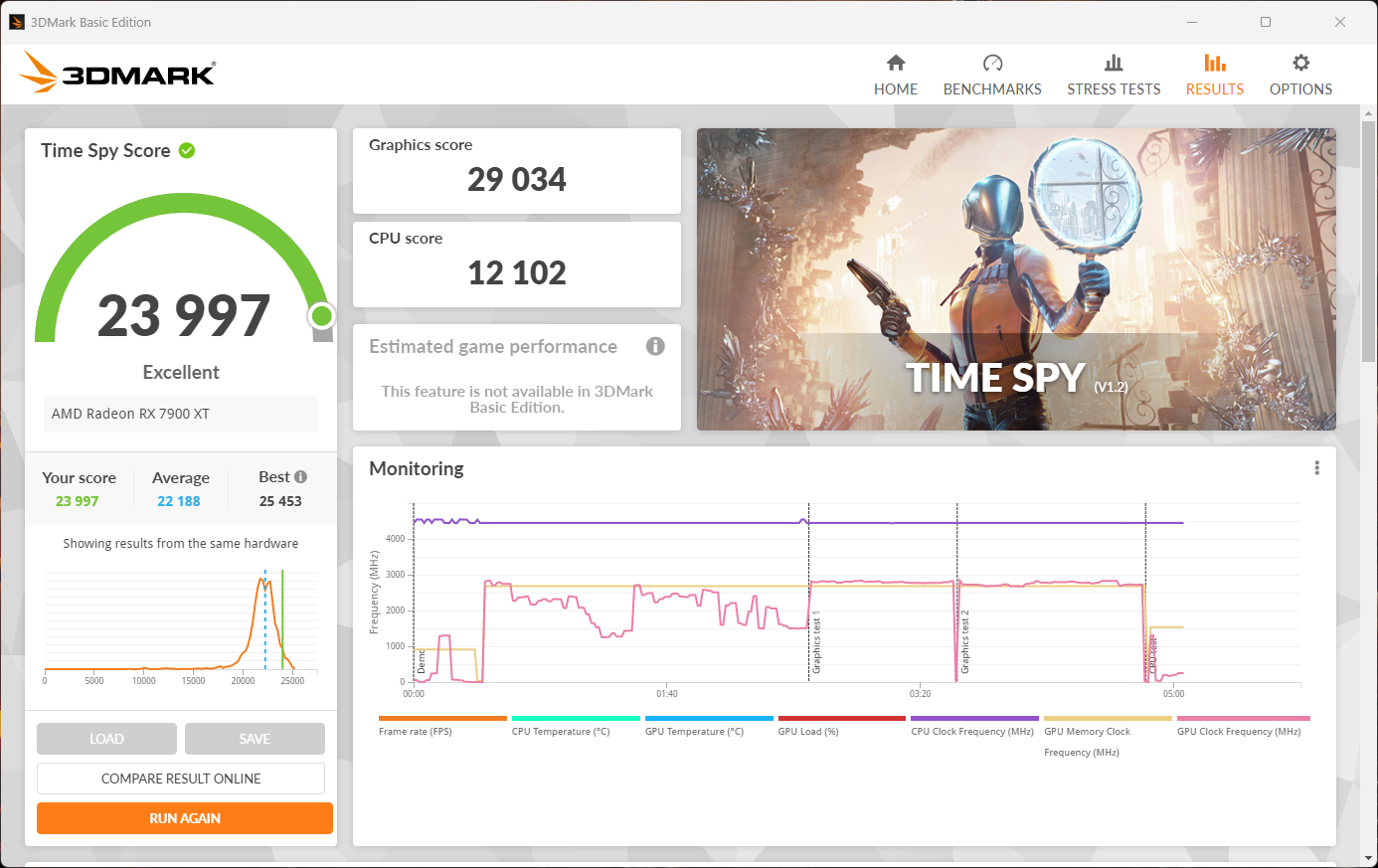Hello everyone,
I've recently upgraded my GPU to a Gigabyte RTX 4080 Eagle OC and it seems to be underperforming according to benchmark testing and experience I've had in games.
The other hardware I'm using is as follows:
i9 9900k
z390 Maximus Hero XI Wifi
Corsair rm1000x shift
I had done a fresh install of windows 10 (64 bit) and ran DDU before installing drivers for GPU.
This is my 3dMark score on Timespy (18900, average for a 4080 should be way higher): https://www.3dmark.com/3dm/102193996?
Another image of my results: View: https://imgur.com/uKOc91F
I ran the same benchmark completely stock and then recently overclocked with MSI afterburner and got about the same.
Any advice you guys could give me would be greatly appreciated!
I've recently upgraded my GPU to a Gigabyte RTX 4080 Eagle OC and it seems to be underperforming according to benchmark testing and experience I've had in games.
The other hardware I'm using is as follows:
i9 9900k
z390 Maximus Hero XI Wifi
Corsair rm1000x shift
I had done a fresh install of windows 10 (64 bit) and ran DDU before installing drivers for GPU.
This is my 3dMark score on Timespy (18900, average for a 4080 should be way higher): https://www.3dmark.com/3dm/102193996?
Another image of my results: View: https://imgur.com/uKOc91F
I ran the same benchmark completely stock and then recently overclocked with MSI afterburner and got about the same.
Any advice you guys could give me would be greatly appreciated!



